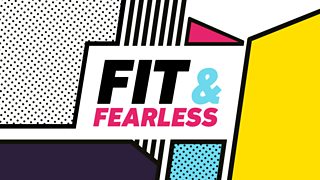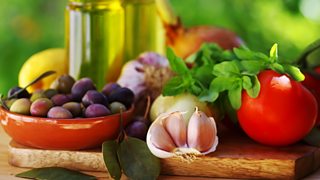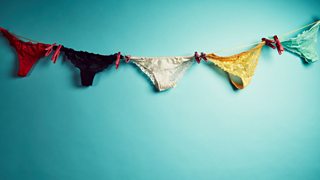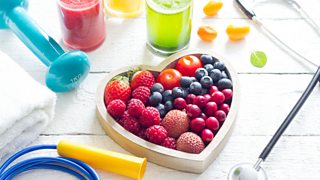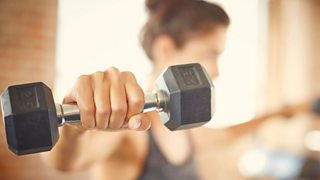Fit & Fearless: Your Nutrition Questions Answered

Are fats bad? Are probiotics worth it? And is gulping down green gunk in smoothies *really* worth enduring?
The Fit and Fearless podcasters Vic, Tally and Zanna put listeners' questions to nutritionist Pixie Turner.
Click here to listen to the full podcast on Βι¶ΉΤΌΕΔ Sounds.
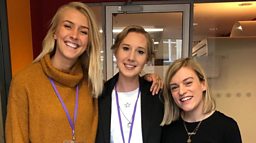
Are superfoods better for you than regular food, or is it just marketing?
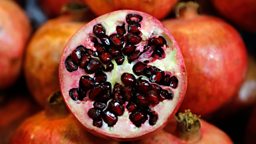
"Superfood is actually a marketing term – it’s not a scientific term… there is really no such thing as a superfood.
"There are obviously some things that are higher in nutrients or more nutrient dense than other foods but to say one food is better than another because it has certain nutrients also discounts the fact that as humans we need a wide variety of nutrients.
"So, while for example, salmon may be seen as a superfood because it contains lots of omega-3… kale may contain a couple of other things like calcium and a bit of fibre... But neither of these foods is better than the other and to compare them is not particularly helpful."
What about a morning shot of apple cider vinegar to kick-start digestion?

"It doesn’t wake up your digestion. It’s like a cold shower – it wakes you up because it’s disgusting and uncomfortable!
"It’s basically like any other vinegar. This is one of the interesting aspects of the whole wellness thing – it’s deliberately apple cider vinegar partly because it’s the more expensive one… but it does nothing.
"It’s meant to ‘alkalise you’ which is hilarious because it’s a really strong acid, so that makes absolutely no sense whatsoever."
Should I be eating food late at night?
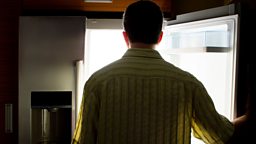
"It’s a really pervasive thing this idea that you shouldn’t eat carbs after 6pm or any food after 8pm. If you’re hungry, you need to eat.
"What if one day you get home at 8pm and you haven’t had dinner and you’re so, so hungry?
"The sensible thing is to eat some food before you go to sleep otherwise your sleep is going to be disrupted and that’s not particularly good for you either."
Does a scoop of green powder in my smoothie make it healthier?
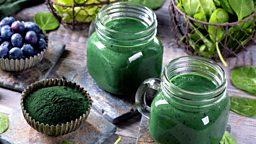
"It will give you some vitamins and minerals – but you can’t legally call that one of your five a day… because you still kind of need things like fibre – you actually need to be chewing the food.
"[Powders] are really expensive and if people can spend that money on buying fruit and vegetables… I would much rather they do that.
"Also I think they’re really vile and I just don’t think people should be eating things that are really disgusting like that!"
How important is your five-a-day?

"I wouldn’t say that five is the be all and end all.
"It generally tends to be the case that the more the better – although obviously if we reach a point where we’re only eating fruits and vegetables that’s not ideal either.
"Five is a good minimum to aim for but as a guideline more than a strict rule. There might be days when you’re really hungover and all you can eat is pizza and toast and that’s okay!"
Is fat bad for you?
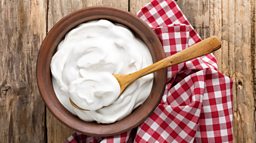
"Fat is definitely not bad for you… You need certain essential fats that your body can’t live without, especially for brain development – these are things like omega-3 that are really, really important for your brain to function and for brain development in general."
Pixie is asked, "If you had to choose between full-fat and low-fat yoghurt, which would you go for?"
"I would say go for full-fat yoghurt, because firstly it tastes better, it’s creamier, it’s more delicious as a result, and those fats are not harmful in any way.
"And then sometimes you get the risk of when you buy low-fat things, they tend to compensate for the lack of fat with something else - and I’d rather people just eat the fat. It’s totally fine!"
Are vitamins worth it, if your diet is varied and good?
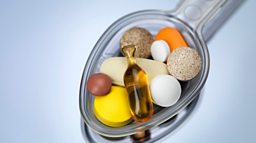
"If you have a specific diet for example, there are some vitamins that you need.
"So if you’re vegan I would absolutely 100% suggest that you take a B12 supplement... Equally if you’re vegetarian or vegan you might benefit from omega-3 supplement if you don’t regularly eat things like walnuts or flax seeds.
"Multivitamins – I wouldn’t say are necessary for most of the population.
"There are certain circumstances when it could be useful – so, if you’re concerned about getting enough fruits and veg… and if you’re wanting to get pregnant I think it’s useful to take a multivitamin just for peace of mind, to know that you’re going to be okay and you don’t have to worry about the health of your future baby because you know you’ve covered all bases.
"Sometimes iron can be useful if you have a deficiency or taking vitamin D supplement in winter."
What about probiotics?
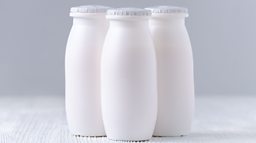
"If you have some kind of gut issues, like severe bloating, like severe gas, things that are making your life really uncomfortable, sometimes a probiotic can help.
"If you don’t have any gut symptoms, you honestly don’t need to worry about it… unless you are taking antibiotics, in which case it might be helpful.
"A little bit of bloating is totally normal. In fact, it’s just a sign you eaten a decent meal… If you’re not farting that’s a problem too!"
Are there bad foods we should absolutely not eat?

"I don’t really agree with the idea of there being good and bad foods – it’s a lot more complicated than that.
"When we get away from these labels of good and bad food… and place food within the context of an overall way of eating, I think that’s a much more healthy way of looking at food.
"Just because it allows for nuance and allows for life to happen and also means people are less likely to feel things like guilt and shame around eating which I do not think belongs in a healthy diet."
Should we be adding salt to our foods? Is Himalayan pink salt any different?

"Again, Himalayan pink salt is the most expensive option – it claims to have loads of benefits because it has some trace amounts of some beneficial things, however it also has traces of non-beneficial things like lead and mercury which I don’t really recommend people consume in large amounts.
"There’s nothing special about Himalayan pink salt. It’s 98 to 99% exactly the same as sea salt… and honestly I don’t think we should be looking for salt for micro-nutrients. I think we should be looking to fruits and vegetables if we want vitamins.
"In terms of whether we should add salt to food, if you’re cooking from scratch, yes. Because food tastes crap without salt! And I honestly think it’s important for people to enjoy their food… just be a bit mindful of how much you add."
I love a gin at the weekend. Is it really bad for you?
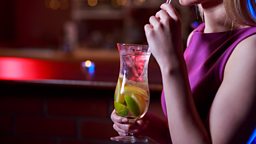
"No it’s fine, you will live! In fact, you’ll probably live longer than people who don’t drink at all.
"One of the most - if not the most - important things for longevity is being sociable and alcohol is one of the key ways that we are sociable with other humans… Just don’t overdo it!"

Want to hear more from Pixie? She answers more of your questions in the Fit and Fearless podcast! Including:
- Is there really any benefit to drinking celery juice?
- What actually qualifies as a portion?
- I don't like eating breakfast. Is this a bad thing?
- Does hot lemon water really 'wake up' your liver?
- Does eating grapefruit in the morning help you burn more calories?
- Does time restricted eating really work?
- Should you replace salt after exercise?
- Is dairy really bad for you?
- What are the best foods to fuel a workout?
- How many calories should I consume in a day?
Listen to the full podcast on Βι¶ΉΤΌΕΔ Sounds!
-
![]()
Your Nutrition Questions Answered! With Pixie Turner
Nutritionist Pixie Turner joins Tally, Zanna and Vic to answer your questions about food and bust some nutrition myths.
More from Fit & Fearless!
-
![]()
Doctors Kitchen author Dr Rupy Aujla explains how to get more greens into your diet.
-
![]()
Dr Anita Mitra - AKA the "Gynae Geek" - thinks it's time we knew more about how our bodies work.
-
![]()
Dr Rangan Chatterjee shares his tips on how to make tiny changes to boost your health.
-
![]()
The Fit & Fearless podcast team debunk some of the common myths about lifting weights.
